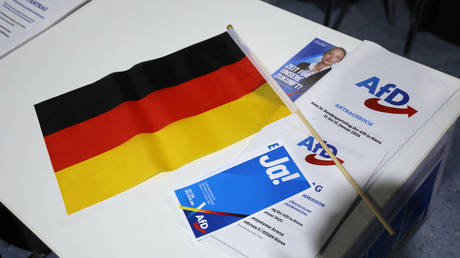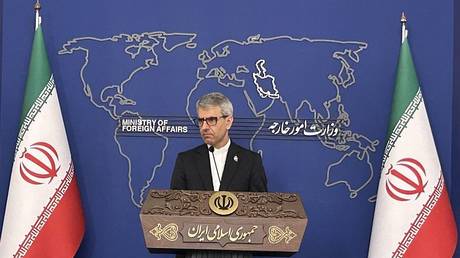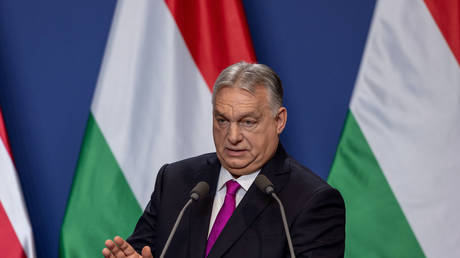
Germany’s leading right-wing party has voted against criticizing the Russian troops in Ukraine
The right-wing Alternative for Germany (AfD) party has overwhelmingly voted against including in its 2025 election manifesto a condemnation of Russian President Vladimir Putin for the conflict in Ukraine.
The delegates gathered for a conference in Riesa, Saxony on Saturday to decide on the platform for the snap parliamentary elections, which will be held next month.
Albrecht Glaser, a member of the Bundestag, proposed to accuse Russia of failing to protect civilians in Ukraine and to state that “AfD condemns the behavior of President Putin and once again calls on all warring parties to propose an immediate ceasefire and hold peace talks.”
According to news channel N-tv, 69% of the delegates voted to reject the motion. The draft program approved by the party leadership only briefly mentions the conflict, saying that “the war in Ukraine has disturbed the European peaceful order,” the news agency Deutsche Presse-Agentur reported.
The draft reportedly says that AfD “sees Ukraine’s future as a neutral state outside of NATO and the EU,” and calls for the restoration of “undisturbed trade” with Russia.
Known for its anti-immigration stance, AfD is the second-most popular party in Germany, according to the polls. The party has been often accused of parroting Russian narratives about the conflict, given that its position on Ukraine mostly aligns with Moscow’s demands to Kiev.
The party has rejected the “pro-Russian” label, insisting that continuing military support for Kiev and sanctions on Russian trade and energy exports are against Germany’s national security.
During her recent conversation with tech billionaire Elon Musk, AfD co-leader Alice Weidel argued that the EU has abandoned diplomatic efforts in favor of dangerous confrontation with Russia. The conflict could “escalate big time towards a nuclear exchange,” she warned.
Early elections were called after Germany’s ruling three-party coalition collapsed in late 2024 due to disagreements over the budget.




